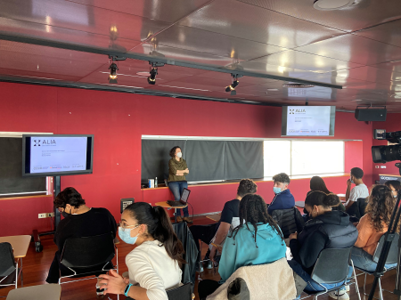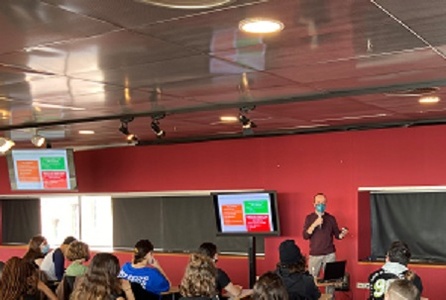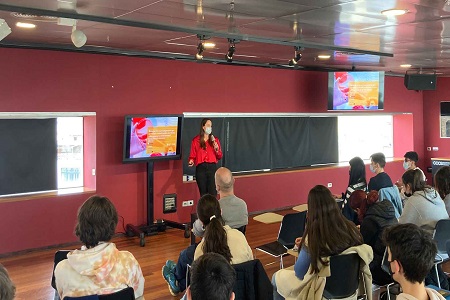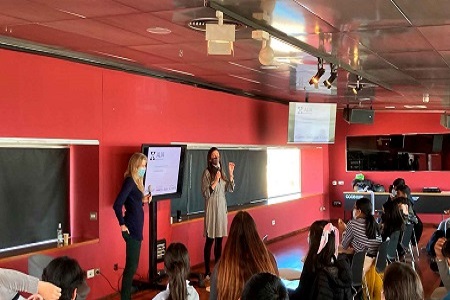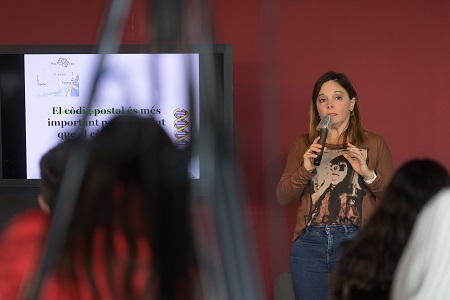ALIA. Cities and Health
Science and creation for secondary schools with ISGlobal
ALIA is the CCCB’s programme that links scientific research and artistic creation for young people. In this second edition, 246 young people from fourth year ESO and first year of Baccalaureate from the metropolitan region of Barcelona and their teachers, work to imagine the future of our cities and rethink their link to human and planetary health. Accompanied by scientists from ISGlobal and by Mixité collective.
Marina Tarrús
Renaturalizing cities
Marina Tarrús, expert in sustainable development and biotechnology, and specialist in the restoration of ecosystems and infrastructures, met the lower sixth-form students at Pau Claris secondary school to talk about how urban society models affect antimicrobial resistance. She explained ...
Xavier Basagaña
Cities and climate change
Xavier Basagaña, associate research professor at ISGlobal and coordinator of the European project CitieS-Health, met with first year students from Milà i Fontanals secondary school to talk about the consequences of climate change on human and planetary health, especially in relation to heat waves and pollution. How can we make cities our allies against climate change?
Natalia Rosón
The invisible city
Natalia Rosón, microbiologist and researcher at ISGlobal, talked to fourth year students at Les Vinyes secondary school about our invisible neighbours: bacteria. They explored how antibiotic resistance is generated, and how cities influence the development and transmission of antimicrobial ...
Carolyn Daher, Sònia Hernández
Architecture that cares
We spend most of the day indoors: at home or at school. Architecture, with its forms and materials, affects the health of those who live in them. How can the city’s buildings take care of us or make us ill? Carolyn Daher, public health expert, and Sònia Hernández, architect ...
Elizabeth Diago
What is a resilient city?
The city and its inhabitants have adapted to epidemics over the centuries. Given the situation caused by COVID-19, and taking into account future communicable diseases that may be triggered by global warming and the arrival of new species, how must cities change to live with climate and health ...
Mònica Ubalde
Urban planning and healthy cities
The presence and location of green and blue spaces, and the mobility model depend on how and for whom we plan cities. How can urban planning help to look after our collective health? Can we imagine a city designed for walking in? Mònica Ubalde, biologist and researcher in the Urban Planning, ...
